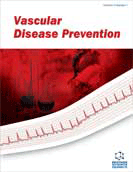Abstract
L-arginine is a basic endogenous amino acid and is a precursor of nitric oxide (NO). NO is synthesized from Larginine by a family of enzymes, called NO synthases (NOS). The constitutively expressed NOS isoforms, endothelial nitric oxide synthase (eNOS) and neuronal nitric oxide synthase (nNOS), are likely to be the major contributors to wholebody NO production. NO is an important signalling molecule in the cardiovascular system regulating vascular tone, platelet activity, monocyte adhesion, thrombosis and is intimately involved in the development of atherosclerosis. Impaired NO mediated-endothelial function has been observed in patients with established coronary, peripheral arterial disease and in patients with metabolic syndrome and type 2 diabetes. Several experimental and clinical studies showed a beneficial effect of L-arginine on endothelium in conditions associated with impaired NO bioavailability. In vitro studies have shown that L-arginine induced NO-mediated-vasodilation and a complex antiaggregatory, anticoagulatory, profibrinolytic and antiatherogenic activity. In humans, L-arginine therapy can augment vascular dilation and inhibit platelet aggregation under certain conditions. Long term administration of L-arginine was able to ameliorate peripheral insulin sensitivity through a normalization of NO/cGMP pathway in type 2 diabetic patients while acute infusion of L-arginine significantly increased forearm blood and decreased endothelin-1 levels in subjects with microvascular angina through increased nitric oxide bioavailability. The mechanism of action of L-arginine may involve NOS provision, mainly in patients with elevated levels of the endogenous NOS inhibitor asymmetric dimethylarginine. Therefore, a novel therapeutic role of L-arginine in the prevention and treatment of endothelial dysfunction and cardiovascular disease should be considered.
Keywords: Type 2 diabetes, cardiovascular disease, insulin resistance, endothelium, prevention, L-arginine
 2
2

